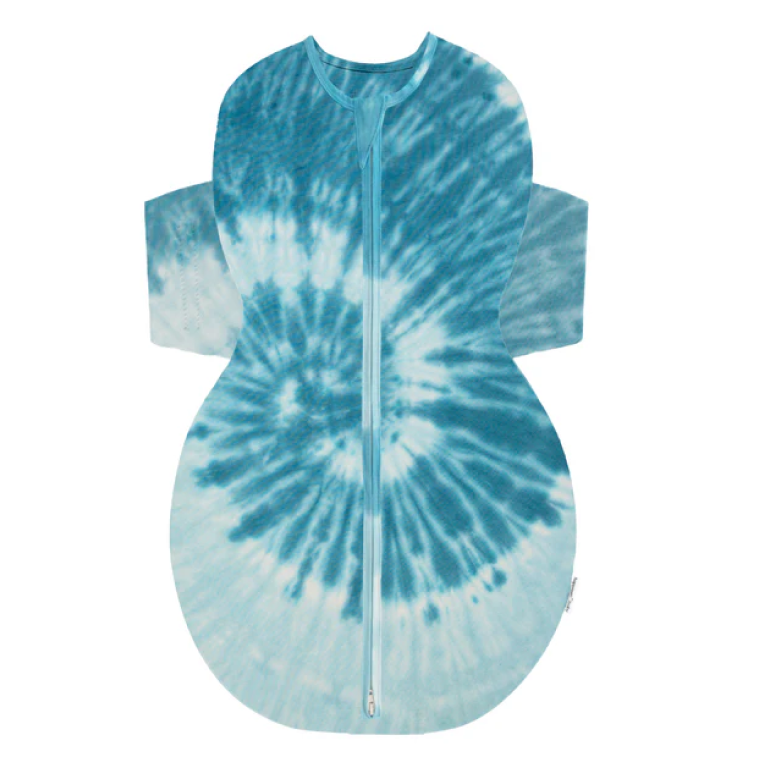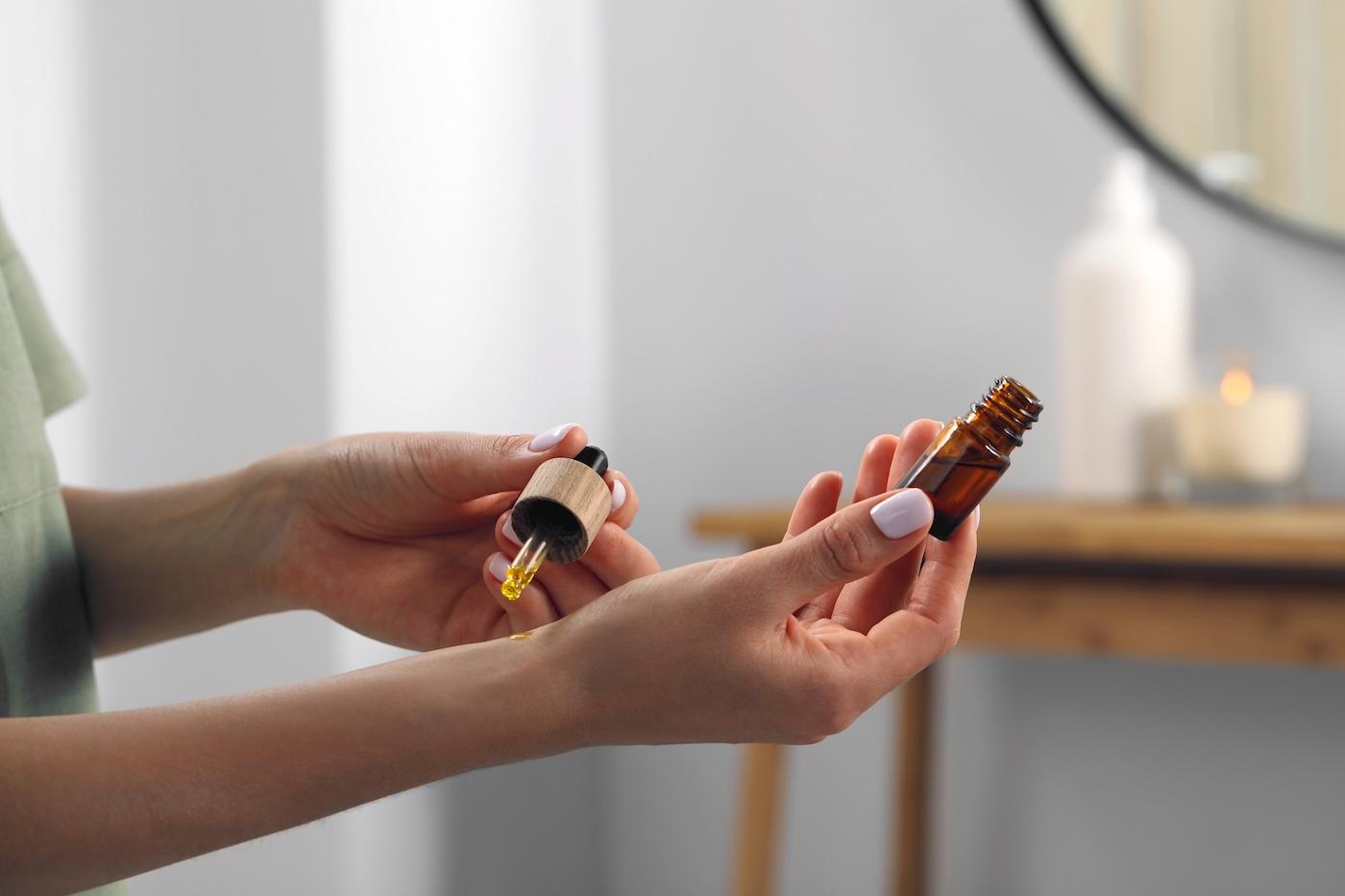PREGNANCY
Is Salmon Roe Safe to Eat While Pregnant?
Is there something fishy about eating roe while expecting?

Written by
Happiest Baby Staff

Salmon roe (ikura) is a delicacy often served on sushi or as a garnish—but it’s generally not recommended during pregnancy unless it’s pasteurized and handled properly. Like other fish eggs (we’re looking at you, caviar!), salmon roe is often served raw and salted, which can carry harmful bacteria (such as Listeria monocytogenes) or parasites. Eating contaminated foods in pregnancy can lead to severe illness and pregnancy complications. (Learn more about the dangers of food poisoning during pregnancy!)
Is salmon roe safe to eat while pregnant?
Unpasteurized, raw salmon roe is risky during pregnancy because of the threat of listeria and other pathogens. However, some packaged roe or caviar is pasteurized (check the label). In that case, you can rest easy knowing that pasteurization reduces risk, but safe handling and refrigeration are still a must. When dining out—especially at sushi bars—assume roe is unpasteurized unless confirmed otherwise and steer clear to be safe.
Potential Benefits of Salmon Roe
While you’re probably not consuming a large enough portion of (safely handled and pasteurized!) salmon roe to really move the needle nutrient-wise, it does offer some potential benefits:
- Omega-3 fatty acids (EPA/DHA): Fish and seafood are leading dietary sources of this brain-building nutrient.
- Vitamin B12 and iron: Roe and other fish products can contribute B12 and iron, nutrients needed for blood formation.
- Vitamin D: The amount in roe varies, but generally fatty fish is a solid source of vitamin D, which supports bone and immune function.
- Protein: Provides amino acids that help your little one grow.
Risks or Considerations
- Listeria and other pathogens: Raw or unpasteurized roe can contain these harmful contaminants.
- High sodium in salt-cured roe: In theory, super salty roe could contribute to excess sodium intake—take a look at the nutrition label and keep your portion size in check!
- Cholesterol: Roe is relatively high in dietary cholesterol. Fortunately, for most folks, dietary cholesterol is not a huge concerns. But if your do have specific lipid concerns, chat with your clinician about their recommendations.
- Sourcing and handling: Specialty or imported roe may be unpasteurized. And even if it is pasteurized, keep roe refrigerated and mind the use-by dates!
How to Safely Eat Salmon Roe While Pregnant
- Choose pasteurized roe sold in sealed jars or tins from reputable brands. Keep it refrigerated and toss once you’re past the use-by date.
- Double check the label to ensure it’s pasteurized. When in doubt—like when dining out—skip roe, since it’s often served raw.
- Limit portions to keep sodium in check and pair with other “Best-Choice” fish during the week to meet omega-3 needs safely. (Here’s what you need to know about the safest food for pregnancy!)
When to Avoid Salmon Roe
- If it is raw or unpasteurized (this is common when it comes to the roe served on sushi).
- If it has been stored improperly (not kept cold) or smells or looks off.
- If you are on a low-sodium plan or have gestational hypertension, limit salt-cured roe.
The Bottom Line
Skip raw unpasteurized salmon roe during pregnancy. If you want to enjoy roe, choose pasteurized, store-bought products, keep them cold, and enjoy in reasonable portions. For omega-3s during pregnancy, prioritize low-mercury, cooked fish from the EPA/FDA Best Choices list (salmon is one option!), which provides the benefits without the infection risk tied to raw seafood.
More on Safe Eating During Pregnancy:
- Is Kimchi Safe to Eat During Pregnancy?
- Is Matcha Safe to Drink During Pregnancy?
- Is Seaweed Safe to Eat During Pregnancy?
- Is Miso Soup Safe to Eat During Pregnancy?
***
REFERENCES
- U.S. Food and Drug Administration: Food Safety for Pregnant Women and Their Unborn Babies
- Centers for Disease Control and Prevention: Protect Your Pregnancy from Listeria
- American College of Obstetricians and Gynecologists: Listeria and Pregnancy
- Centers for Disease Control and Prevention: Safer Food Choices for Pregnant Women
- U.S. Food and Drug Administration: Listeria (Food Safety for Moms‑to‑Be)
- Office of Dietary Supplements, NIH: Omega‑3 Fatty Acids — Fact Sheet for Health Professionals
- Office of Dietary Supplements, NIH: Pregnancy — Fact Sheet for Health Professionals
- U.S. Department of Health and Human Services & U.S. Department of Agriculture: Dietary Guidelines for Americans, 2020‑2025 and Online Materials
- U.S. Environmental Protection Agency / U.S. Food and Drug Administration: Advice About Eating Fish and Shellfish — Choose Fish and Shellfish Wisely
Disclaimer: The information on our site is NOT medical advice for any specific person or condition. It is only meant as general information. If you have any medical questions and concerns about your child or yourself, please contact your health provider.
SHARE THIS ARTICLE
MOST LOVED
Sleepytime Sidekicks












